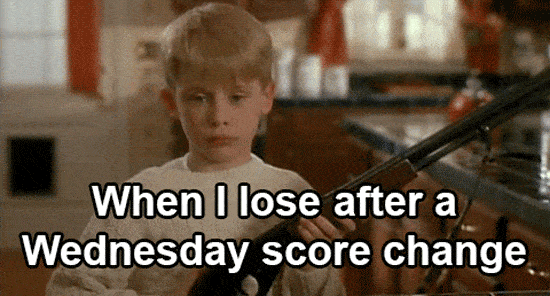Blog: Email Marketing Strategy & Tactics
In 2013, it was estimated that 32 million Americans spend $467 per person or about $15 billion in total playing fantasy sports. In 2015, that number jumped to $26 billion and shows no signs of decreasing.
Holy cow.
While you’re trying to process the crazy amount of money that is being spent on virtual football, baseball, basketball, and other sports, you might also be asking yourself what any of this has to do with email marketing? Fair question. In fact, I’d probably be worried if you weren’t curious about a possible connection between the two. And yes, there is a connection.
Take a look at the following description, and tell me if I’m talking about fantasy sports or email marketing:
It’s a game of strategy, keen judgment, and knowing when to change it up. It’s about minimizing risk while maximizing upside. It’s an analytical review of past performance and educated guesses for future moves. It’s a flowing and constantly evolving way of life that requires digital grace for success.
So, am I talking about fantasy sports or email marketing? Well, it’s both.
You see, the great thing about sports is that the lessons in sports can be applied to all aspects of life, and fantasy sports are no different! Fantasy sports is more than just a game of picking your virtual guys who will play for you for the day, week, or year and letting it roll. It’s strategy and planning, review of techniques, and balancing risk to achieve maximum reward. Email marketing works very similarly.
1. It’s a Week-To-Week Game

The thing about fantasy sports, and let’s use fantasy football for this example, is that it’s not really a year-long game. Sure, you want to take home the championship, but you probably won’t get there by only playing the guys you drafted. Fantasy football is really a weekly game: each week you’re making moves to win THAT WEEK, not moves for the year. Big-picture play is great, and deserves some focus, but it’s hard to make the playoffs if you can’t adjust your team on a weekly basis. Email is similar.
When it comes to email marketing, looking at the big picture of a campaign is very important when it comes to the alignment of your efforts and various emails, but so are the week-to-week details. Like fantasy football, email marketing needs to be treated as a “weekly game.” While you can have an overarching campaign, each email is its own competition and needs to be treated as such, while also being part of the big picture. If you’re doing a 2017 email campaign designed to bring people to your website, your monthly and weekly emails must be able to adapt when necessary to achieve a more efficient ending. With the overall idea of “winning” your campaign (season) in mind, you need to look to each email as its own vehicle for success. Which brings us to point two…
2. Make Smart Moves

During every fantasy sports season, you will inevitably be faced with a conundrum of some sort, usually many conundrums. Do I want to start Derek Carr or Dak Prescott this week? Should I start the sure thing at wide receiver or a guy who could explode this week? Am I picking the Cleveland Browns to win this week?* Similarly, email is a game that requires moves that can best be described as calculated risk.
Email needs to be looked at with the same strategic eye you use to set your starters. Much like choosing between two running backs, email marketers must decide between subject lines, headings, CTAs, and tone of emails. If your open rate is falling below expectations, like a certain running back (coughToddGurleycoughcough), then you need to know when to change it up and use a different subject line to spur more opens in future emails. If the CTR is floundering like DeAndre Hopkins’ season, then change the CTA and see if a new wording (player) can make a difference. Knowing when to act can make or break a campaign (season) and is the sign of a winner.
3. One Bad Week Doesn’t Kill A Season

Once upon a time, there was a guy in my fantasy football league who had a terrible team. His players were basically the equivalent of the high school JV team, and my team was riding a four-game winning streak. What happened in our matchup? Well…let’s say that some of my guys overslept or were out partying the night before, because I got whacked! My team got absolutely destroyed by this guy and it had me worried for a second, but then I remembered a long-standing fantasy rule: It’s a long season. Surprise surprise, this applies to email as well.
If you send out an email and it absolutely bombs — I’m talking terrible open rate, no CTR, and more than usual unsubscribes — well…it happens to all of us eventually. Despite your best efforts, everyone has a down email, or week, from time to time. The important thing is to not let it discourage you from future emailing endeavors but to learn from it. This ties in directly with point two: if you have an email that suffers, you need to assess why it failed and make smart moves to change the next one. Failure is not always a bad thing, especially when you can learn from it. Good news for email marketers, great news for the Cleveland Browns.
4th and 1
Fantasy sports can translate to many facets of our lives, with email being no different. The success of an email campaign and a fantasy football season relies on the same characteristics in order to succeed, with each really just being games educated guesses, best practices, hunches, and occasionally dumb luck. Still, when skill and preparation come together in both, that’s when you have a shot at great email success (championship!)
* Just kidding! Nobody’s ever done that.

